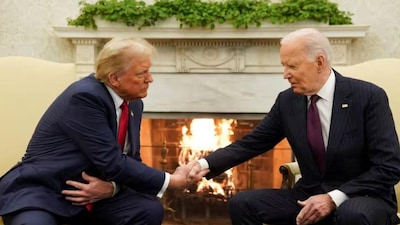By VK Sharma,
Trump’s intention to raise tariffs to protect American trade was widely anticipated and largely factored in. However, his speech last week, hinting at the possibility of declaring a state of emergency to implement his sweeping tariff plans, caught markets off guard.
The Nifty fell 0.4% Friday, and the Nifty SmallCap Index slipped 2.6%. For the week, the Nifty slumped 2.39% and the Nifty SmallCap index tanked 7.29%. The midcaps, which had held their ground earlier as compared to the Nifty, have finally capitulated. There is more weakness in store.
Meanwhile, the US markets plunged on Friday after a stronger-than-expected December jobs report fueled concerns about a prolonged Federal Reserve pause on rate cuts. This sent the Treasury yields sharply higher and the equity markets lower.
This has raised the odds that the Fed will keep rates unchanged at its January meeting to 98%. The next cut is now expected only in June or July.
Friday’s post-data selloff in US government debt drove yields on the 10-year Treasury note and 30-year Treasury bond to their highest closing levels of the past 14 months.
The 10-year yield spiked 8 basis points to 4.765%, while the 30-year rate rose 4.2 basis points to 4.962% after briefly rising above 5%. If the yields were to close above the 5% threshold, it could trigger a downgrading of equity markets.
The Dow Jones Industrial Average fell 1.7%, while both the S&P 500 and the Nasdaq Composite slipped 1.6%. For the week, the Dow and S&P 500 each dropped 1.9%, while the Nasdaq tumbled 2.3%.
In a move likely to stir controversy, the Biden administration has announced sweeping sanctions targeting Russia’s oil sector. This is a mischievous move to help the oil and defence lobbies of the US just days before Donald Trump re-enters the White House.
Although the new sanctions come into effect from February, they have already lit a fire under crude oil pot with the Brent Futures closing at their 3-month highs. A rising crude and a depreciating rupee can continue to bother the markets for some time.
In a mid-air summersault, the Chinese Central Bank announced Friday that it had temporarily stopped buying government bonds. This will reduce liquidity in China and the currency could weaken.
» Read More


